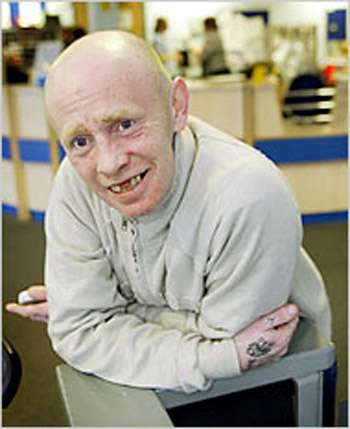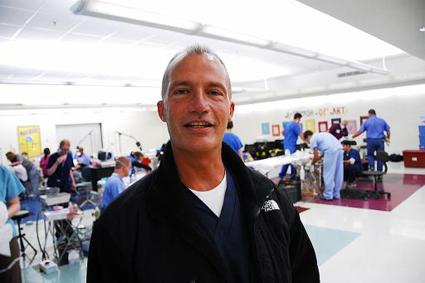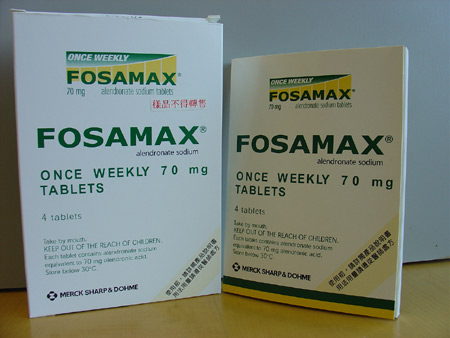-
Needless Tooth Extractions in the United Kingdom? Extractions Soar 30 Per Cent in Four Years

William Kelly, 43, extracted part of his own tooth, leaving a black stump. He plans to pull one more.
So claims the Liberal Party in the United Kingdom.Thousands of Britons are having teeth needlessly pulled out, it was claimed yesterday.
The number of extractions has soared by 30 per cent in four years, according to figures obtained by the Liberal Democrats.
The party claims this demonstrates how much dental care has deteriorated under Labour, leaving thousands missing out on treatment that could save their teeth. More than 175,000 Britons had their teeth extracted under general anaesthetic in 2007/08, up 40,000 on the 2003/04 figure, a parliamentary answer revealed.
If indeed true, is that what American dentistry has to look forward under an Obama socialized health care framework? Or is this indicative of only the botched National Health Service dentistry system of the United Kingdom?
Certainly, an extraction is cheaper than a root canal, build-up and crown but at what price to the person’s health and self-esteem? But, if the government is paying the price, should the people NOT pay for the cheapest of care?
Who will draw the line and make the decision as to who receives what? Hypocritical Prime Ministers?
The United Kingdom is painfully working its way out of socialism towards a private system for dentistry.
For now, they have the worst of both worlds.
The people should insist on immediate reform, transition towards private dentistry and a government safety net for the poor disabled and infirm.
Technorati Tags: Dentistry, Tooth Extractions
-
New Australian Study Links Alcohol Containing Mouthwashes and Oral Cancer
Cross Posted from Flap’s Dentistry Blog A new study appearing in the December edition of the Journal of the Australian Dental Association finds: “sufficient evidence” that “alcohol-containing mouthwashes contribute to the increased risk of development of oral cancer.”
A new study appearing in the December edition of the Journal of the Australian Dental Association finds: “sufficient evidence” that “alcohol-containing mouthwashes contribute to the increased risk of development of oral cancer.”Leading independent experts have issued this strong warning after investigating latest scientific evidence linking alcohol-containing mouthwashes to the deadly disease.
Their review, published in the Dental Journal of Australia, concludes there is now “sufficient evidence” that “alcohol-containing mouthwashes contribute to the increased risk of development of oral cancer”.
The ethanol in mouthwash is thought to allow cancer-causing substances to permeate the lining of the mouth more easily and cause harm.
Acetaldehyde, a toxic by-product of alcohol that may accumulate in the oral cavity when swished around the mouth, is also believed to be carcinogenic.
Listerine, the nation’s biggest-selling mouthwash and a brand endorsed by the Australian Dental Association (ADA), contains as much as 26 per cent alcohol.
The abstract and link to the piece (yes, you have to pay for it) is here.
The role of alcohol in oral carcinogenesis with particular reference to alcohol-containing mouthwashesWorldwide, oral cancer represents approximately 5 per cent of all malignant lesions, with over 800 new intra-oral squamous cell carcinomas registered in Australia each year. Despite recent advances in therapy, the five-year survival rate remains around 50 per cent and the sequelae of treatment can be seriously debilitating. It has been long established that smoking and alcohol consumption are risk factors linked to the development of oral cancer. This review assesses the epidemiological evidence, supportive in vitro studies and mechanism by which alcohol is involved in the development of oral cancer. Further, we review the literature that associates alcohol-containing mouthwashes and oral cancer. On the basis of this review, we believe that there is now sufficient evidence to accept the proposition that alcohol-containing mouthwashes contribute to the increased risk of development of oral cancer and further feel that it is inadvisable for oral healthcare professionals to recommend the long-term use of alcohol-containing mouthwashes.
(Accepted for publication 30 March 2008.)
There are older studies that say that there is no correlation between oral cancer and alcohol-based mouthwashes, including a 2003 study in the Journal of the American Dental Association.
Department of Epidemiology, School of Public Health, The University of Alabama at Birmingham 35294-0022, USA. pcole@uab.edu
BACKGROUND: There has been concern that the use of alcohol-containing mouthwash may increase the risk of developing oropharyngeal cancer, or OPC. The authors examine the epidemiologic literature relating to this issue. TYPES OF STUDIES REVIEWED: The authors identified all nine English-language epidemiologic studies of OPC that made reference to mouthwash. The findings and major strengths and limitations of each study are described. In addition, the authors reanalyzed data from one of the studies. RESULTS: The results of six of the studies reviewed are negative and provide no support for the hypothesis that use of alcohol-containing mouthwash increases the risk of OPC. One of the three studies with positive results was a case series and included a follow-up case-control study, the results of which were negative. The authors reanalyzed the study with the most positive results. This analysis found that the study results were just as positive for nonmucosal cancers developing in the mouth as they were for the usual type of OPC. The authors concluded that this study’s positive finding resulted from recall bias. CLINICAL IMPLICATIONS: It is unlikely that the use of mouthwashes that contain alcohol increases the risk of developing OPC.
And, a 2004 paper here:
Carretero Peláez MA, Esparza Gómez GC, Figuero Ruiz E, Cerero Lapiedra R.
Facultad de OdontologÃa de la Universidad Complutense de Madrid, Spain. mangelescarretero@hotmail.com
For centuries, mouthwashes have been used in order to provide us with oral health or cosmetic benefits. Nowadays, in most countries, there is a variety of formulas available for the general public in the form of products which may require prescription or not. Alcohol is used in mouthwashes as a solvent of other ingredients and as a preservative of the preparation. For years, different formulas of mouthwashes have been used, however, the question about its alcohol content being a threat for health or not has recently appeared. The high quantity of alcohol in some mouthwashes combined with the fact that they keep in contact with the oral mucosa for much more time than alcoholic drinks, can make us think about a harmful effect from a local mechanism. Mouthrinses increase the time of the mucosa being in contact with alcohol and it has been proved that those with a high content of alcohol do cause hyperkerastosic lesions both in human beings and laboratory animals. At the moment and with the data we have, it has not been possible to establish a causal relationship between the use of alcohol-containing mouthwashes and the development of oral cancer. There is neither an evidence of the fact that alcohol increases the effects of antiplaque agents in mouthwashes.
Flap does not know if the case has been made in the Australian study but will urge his patients to use caution and if they must use a mouthwash then use a non-alcohol based one.
Flap will make the switch (Biotene makes a non-alcohol one) or use none at all – probably none at all. With proper dental hygiene (brushing and flossing) and regular professional care why bother and take a chance?
-
New Dentistry Cause for Alarm for Patients Who Use Bisphosphonates – Fosamax, Actonel, Boniva?
Cross Posted from Flap’s Dentistry BlogA new study coming out of Flap’s alma mater, the University of Southern California School of Dentistry has reported an increased incidence in the occurrence of osteonecrosis of the jaw among patients taking oral bisphosphonates, including Fosamax, Actonel and Boniva.In a separate report Thursday in the Journal of the American Dental Assn., Parish Sedghizadeh of the USC School of Dentistry reported that he had observed nine cases of osteonecrosis of the jaw among 208 patients taking oral bisphosphonates — an unusually high incidence.
Osteonecrosis of the jaw — death of the bone — is known to occur in 1% to 10% of cancer patients taking intravenous bisphosphonates to combat bone weakening brought on by chemotherapy. It is rarely observed in patients taking oral forms of the drug, however.
Some people immediately dismissed his findings, arguing that the widespread use of the drugs would have already revealed such a high incidence of a disabling side effect.
“The most important criticism is that the sample size was only 208 patients,” said Dr. Robert R. Recker, director of the Osteoporosis Research Center at Creighton University in Omaha and president of the National Osteoporosis Foundation. “The study design and sample size were simply inadequate to make any conclusions.”
Both the American Society for Bone and Mineral Research and the American Dental Assn. have recently conducted comprehensive reviews of the risks of osteonecrosis associated with oral bisphosphonates, added Dennis Black, a professor of epidemiology and biostatistics at UC San Francisco. They concluded “that the risk is somewhere between 1 in 10,000 and 1 in 100,000, and it is not clear that this is increased by bisphosphonates,” he said.
The American Dental Association today issued the following advisory which is here.
Most noteworthy from the advisory:
- The American Dental Association has reviewed previous studies on this issue which indicate that use of oral bisphosphonates (medication commonly prescribed for patients with osteoporosis) has been associated with a low risk for developing ONJ-one study indicated 1 out of 2,260 people taking oral bisphosphonates develop ONJ. This new study from USC claims that the frequency of ONJ among oral bisphosphate users is higher than previously reported-approximately 4 percent of the people studied.
- It’s important for me to know if you are on bisphosphonate drugs or if you’ve used them in the past because of the possible risk of developing ONJ. ONJ is uncommon, but it can be serious. If you have received bisphosphonate therapy intravenously related to cancer therapy, you may be at a higher risk of developing ONJ than if you take oral medication.
- Current ADA recommendations suggest that routine dental treatment generally need not be altered merely because a patient is taking or has taken oral bisphosphonates. However, patients with any history of bisphosphonate therapy should be especially encouraged to practice optimal oral hygiene and to receive routine dental examinations. Furthermore, a comprehensive oral examination and treatment before or soon after commencing bisphosphonates therapy may be beneficial for patients if they’re not already receiving regular dental care to treat existing oral health problems
A previously issued patient handout is available for download here (pdf).
This is a controversy which will be further studied.
In the meantime, Flap urges caution for patients taking ORAL Bisphosphonate medications. And,please patients update your health history and tell your dentist if you are using these drugs.
Previous:
Technorati Tags: Bisphosphonate, Fosamax, Actonel, Boniva, Osteonecrosis of the Jaw
-
Dentists are NOT Doctors
DOCTOR John Crippen must have been seeing too many patients as of late and is cranky, tired or a little of both as he goes off and offends UK dentists and the profession of dentistry in his latest post: It’s Official: Dentists Are Not Doctors.
It was well over ten years since the General Dental Council decided to allow its members to use the title “doctorâ€. This followed a long campaign by “Dr†Douglas Pike, who drills teeth somewhere in Suffolk:
Dr Douglas Pike – the General Dental Council’s decision to permit use of the title is effective immediately – said that his sole aim was to bring Britain into “harmony” with the rest of the world. Dr Pike, who practises in Sudbury, Suffolk, said: “We are primary healthcare workers just like GPs. We prescribe drugs, take biopsies and X-rays, and our training is very similar.”
The IndependentMr Pike was of course talking bollocks. Dentists are dentists. No more. No less. They are no more doctors than the chiropractors and other practitioners of mystic alternative arts that masquerade as medicine.
Flap remembers his first dental class at the University of Southern California School of Dentistry with Dr. Clifton O. Dummett, D.D.S. welcoming us to the profession of dentistry. “Welcome Doctors.” The good professor then went on to our inaugural lecture about some of the history of dentistry and why dentists are known as doctor.
For indeed, Flap’s degree earned after four years of post baccaleureate university work at the school of dentistry is a Doctor of Dental Surgery degree (DDS).
And, American dentistry has awarded such degrees since 1840.
1840—Horace Hayden and Chapin Harris establish the world’s first dental school, the Baltimore College of Dental Surgery, and originate the Doctor of Dental Surgery (DDS) degree. (The school merges with the University of Maryland School of Dentistry in 1923).
Perhaps Dr. Crippen is reflecting on some old long held bias against the dental profession, UK dentistry is practiced barbarically or maybe he had a root canal treatment fail yesterday but with all of the major advances in dentistry from public health to implant surgery he is simply uninformed and wrong.
Actually, it is embarassing.
Technorati Tags: Dentistry, Doctor of Dental Surgery
-
Fred Quarnstrom – How NOT to Resign from a State Dental Board – The Response

Fred Quarnstrom, Seattle dentist, Las Vegas ADA Convention, October 2006. Photo by Flap
Remember the FLAP?Flap gets the following via e-mail:
Flap,
For some reason, I do not understand, you seem to be on a vendetta aimed at me. I was alerted to your site by someone who suggested it is probably slanderous.
You obviously can publish anything that is public record. I certainly gave you enough references in my response that you can take out of context and make me look good or bad.
As to my being reappointed or not reappointed. We will never know for sure.
You are welcome to your speculation. However, if I had stayed knowing about the cover-up of the deaths, I would be part of the problem. Once I knew; I felt obligated to do something. I left so I could expose what was going on.Because of my two media exposures, one three years ago and one this year, of the problems of anesthesia the DQAC is about to pass, I was told in November, new anesthesia regulations to update the ones I helped formulate
15 years ago after the first death. I worked for 4 years on these new
regulations.You may feel all dentists suffer under an oath of silence. However, dental ethics has advanced beyond that.
Being a lifelong Democrat, it hurt me to go public, as it did reflect on our Democratic Governor who had been alerted by me to the problems.
Because of my public stance, I have had an oral surgeon tell a patient who needed an implant, “If he is so God Damned smart, why does he not do the implant. I want you to leave my office. I will not treat you.” She had found him on her own. He was already to do the implant until he told her I will put all this information in a letter to your general dentist. At this point he picked up her chart and realized I was her general dentist.
I am honored that you find me worthy of this much of your time.
Fred
—
Fred Quarnstrom DDS
FAGD, FASDA, FICD, FACD
Diplomate, American Board of Dental Anesthesiology Diplomate, National Board of Dental Anesthesiology Certified, American Association of Dental ConsultantsAuthor – Open Wider: Your Wallet Not Your Mouth, A consumer’s guide to dentistry.
Before somebody alerted Fred Quarnsrom about an alleged vendetta Flap received this e-mail (below the fold):
-
Fred Quarnstrom – How NOT to Resign from a State Dental Board
Flap missed this report when it first came out during the summer but is happy to report it now. The FLAP involves Seattle dentist, Fred Quarnstrom, who has resigned (or was NOT reappointed) to the Washington Dental Quality Assurance Commission (DQAC).
Fred Quarnstrom, Seattle dentist, Las Vegas ADA Convention, October 2006. Photo by FlapThis has become a classic case study in how to not serve the public in a state professional regulatory board. Here is Dr. Quarnstrom’s resignation letter:
When it was apparent that Quarnstrom was NOT going to reappointed to another term on the DQAC, he unfairly and unprofessionally attacks the same board and colleagues over previously decided disciplinary cases. This is without regard to the dentists who were previously adjudicated in which Quarnstrom apparently did not agree with the DQAC board’s findings. A piece about Quarnstrom’s moans found a sympathetic airing here.
At least three patients have died after dental procedures in the last three years in Washington, and critics say some of the cases weren’t examined closely enough by the state’s dental disciplinary board.
The Washington Dental Quality Assurance Commission found no wrongdoing in all three cases.
“When it comes to death cases, the board sure doesn’t do well,” said Fred Quarnstrom, a Seattle dentist who recently resigned from the dental board. “I think they should go to a hearing. Why is it a secret?”
The handling of the three known cases raises questions about the consistency and thoroughness of the state’s review process, Quarnstrom said.
So, when you are NOT going to reappointed to a public regulatory board (even though you are an Eage Scout and put up yard signs during the Governor’s campaign) you go public and bash the very same board upon which you labored the previous four years. Real mature and professional Fred.
The exit questions are: Why didn’t Quarnstrom go to the press and make a major Flap when he was a member of the DQAC? Or, did Fred Quarnstrom do so and was so out of the mainstream of dental education and training with pre-conceived bias that he was either ignored or marginalized?
In any case, the public is better served without Quarnstrom on the Washington Dental Quality Assurance Commission.
Technorati Tags: Dentistry
-
Gummy Bears Posed to Fight Tooth Decay

Gummy Bears
Now, there are Gummy Bears that are fighting tooth decay. The sticky, bear shaped candy is made with the sugar substitute Xylitol and distributed to children to actually prevent dental disease.
Go figure.The children in the study were given four bears three times a day, containing different concentrations of xylitol. The results show that after six weeks of gummy bear snacking, the levels of harmful MS bacteria in the children’s plaque was significantly reduced. According to Ly “Based on our findings, it is feasible to develop a clinical trial of a gummy-based caries prevention programme. Such a study is now being carried out in the East Cleveland primary school district (Ohio, USA).â€
Tooth decay is one of the most common diseases in the world. The distribution of Xylitol gummy bears in the school setting may help to reduce the burden of this foremost chronic childhood disease in Europe and the US.
A “MAGIC MOUTHWASH” in Gummy Bear form. Sure beats drilling and filling.
Stay tuned…….
Technorati Tags: Dentistry, Gummy Bears, Xylitol
-
Avril Lavigne Leave Your Vampire Teeth?
 There is a report out that singer Avril Lavigne is unhappy with her “Vampire Teeth.”
There is a report out that singer Avril Lavigne is unhappy with her “Vampire Teeth.”Avril Lavigne is set to have significant dental work because she is so self-conscious about her “fangs”.
The ‘Girlfriend’ singer – who is married to Sum 41 guitarist Deryck Whibley – is so worried about her pointy molars she is determined to have them corrected.
A source close to the singer told America’s Star magazine: “Avril hates her fangs. She is planning on having them filed down by a cosmetic dentist. It’s just something she has always been insecure about, especially since everyone is staring at her mouth when she sings.
Check out the photo above and her music video linked above (no, it is not a Rick Roll) and answer Flap truthfully.
Are Avril’s teeth that bad?
The answer is NO.
Please Avril don’t do what Hillary Duff did.
Technorati Tags: Avril Lavigne, Dentistry
-
Human Saliva Speeds Wound Healing
 The above photo is not what Flap really had in mind but new studies have discovered the age old observations as to why animals lick their wounds.
The above photo is not what Flap really had in mind but new studies have discovered the age old observations as to why animals lick their wounds.A report by scientists from The Netherlands identifies a compound in human saliva that greatly speeds wound healing. This research may offer hope to people suffering from chronic wounds related to diabetes and other disorders, as well as traumatic injuries and burns. In addition, because the compounds can be mass produced, they have the potential to become as common as antibiotic creams and rubbing alcohol.
Specifically, scientists found that histatin, a small protein in saliva previously only believed to kill bacteria was responsible for the healing.
“This study not only answers the biological question of why animals lick their wounds,” said Gerald Weissmann, MD, Editor-in-Chief of The FASEB Journal, “it also explains why wounds in the mouth, like those of a tooth extraction, heal much faster than comparable wounds of the skin and bone. It also directs us to begin looking at saliva as a source for new drugs.”
Now, comes the isolation process and the derviative drugs. Better living though licking.
Flap can hardly wait.
Technorati Tags: wound healing, dentistry, histatin
-
The Case of Dr. Roy S. Shelburne – Convicted and Sentenced to Two Years in Federal Prison But U.S. Attorney Wants More

Dentist Dr. Roy S. Shelburne, D.D.S. of Virginia
The federal prosecutors are NOT satisfied sending Virginia dentist, Dr. Roy S. Shelburne, D.D.S. to the POKIE for two years.A U.S. attorney is appealing a federal district court judge’s decision to vacate a dentist’s convictions for money laundering, setting up a legal battle over a federal statute that was recently interpreted by the U.S. Supreme Court.
A notice of appeal has been filed in the U.S. Court of Appeals for the Fourth Circuit. The appeal from Acting U.S. Attorney Julia C. Dudley indicates the government is pushing back against an ambiguous Supreme Court decision that in some money laundering cases holds prosecutors to a higher burden of proof.
Let’s see:
- Dr. Shelburne will be sent to federal prison for two years and/or a fraction thereof.
- Dr. Shelburne has lost his dental license, his dental practice and his livelihood.
- Dr. Shelburne more than likely has forfeited alot of his assets in legal fees fighting the government.
Yet, the federal prosecutors want more.
The question to ask at this point is why?
Previous:
The Case of Dr. Roy S. Shelburne – Convicted and Sentenced to Two Years in Federal Prison
The Case of Dr. Roy S. Shelburne – 7 of 10 Counts Thrown Out of Court – Part Two
The Case of Dr. Roy S. Shelburne – 7 of 10 Counts Thrown Out of Court
The Case of Dentist Dr. Roy S. Shelburne – Sentencing Postponed
Technorati Tags: Dr. Roy S. Shelburne, Medicaid fraud


